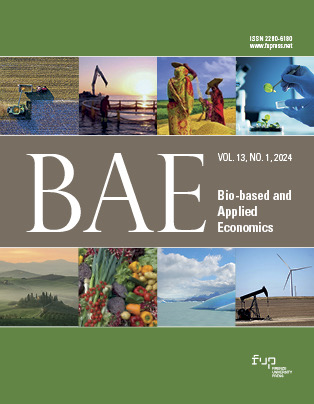Innovative contract solutions for the Agri-Environmental-Climate Public Goods provision: Which features meet the farmers’ approval? Insights from Emilia-Romagna (Italy)
Published 2023-05-15
Keywords
- public goods,
- result-based,
- collective approach,
- value chain,
- land tenure
How to Cite
Copyright (c) 2023 Riccardo D'Alberto

This work is licensed under a Creative Commons Attribution 4.0 International License.
Funding data
-
Research Executive Agency
Grant numbers 817949
Abstract
The agroecological transition promoted worldwide is supported by the European Union Common Agricultural Policy towards different strategies and policy tools. The agri-environmental schemes, offering farmers the possibility to adopt environment-friendly practices (thus mitigating negative externalities/providing positive ones) represent a straightforward example. However, there is dissatisfaction about their effectiveness and efficiency, while their improvement is envisaged through a flexible mix of new instruments: novel contract solutions fostering result-based payments, collective implementation, involving value chains and land tenure systems coupled to environmental conditionality. This paper investigates how farmers from Emilia-Romagna (Italy) perceive these innovative contract solutions as “easy to understand”, “applicable”, “economic beneficial”, and their willingness to enroll. The applied ordered logistic regression models include socio-demographic characteristics, structural features of the holdings, and the farmers’ preference(s) for 13 individual contract features. Farmers’ perceptions are driven by the previous experience acquired from similar measures, key socio-demographic characteristics/holding structural features, and peculiar contractual elements.






